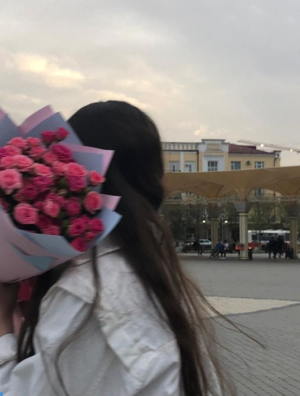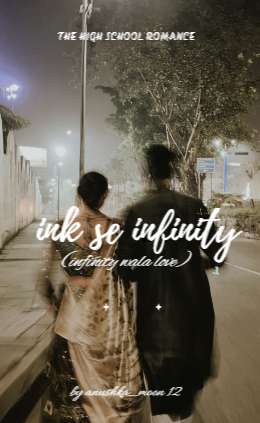AUTHOR'S POV
Two days had passed since the incident—the fall, the twisted ankle, the sharp cry that had echoed through the silent bungalow like a broken thread of peace. Now, the pain had dulled into a persistent throb, no longer sharp but still a quiet reminder of her fragility. Meera could walk again—slowly, carefully, without the crutches. The limp in her step remained, but something inside her had begun to stir. The stillness in her chest was loosening, the heaviness giving way to breath.
That morning, the sun peeked shyly through the tall arched windows of the haveli. Outside, the world stirred with routine life—the clang of metal pots, the distant cry of a hawker, the chirping of restless sparrows. But inside, within the stone embrace of the bunglow's vast corridors, silence hung like an old shawl—heavy and suffocating.
Meera wandered aimlessly through the bunglow. Her fingers brushed along the cold carved walls, tracing the forgotten patterns etched into stone pillars. She paused at windows, watching the flicker of light and dust, her thoughts echoing louder than any footstep.
Restlessness simmered under her skin like a caged wind.
Her feet, unbidden, turned toward the hallway she had always passed but never truly explored—the corridor that led to the study.
She had been there before, two or three times. Just at the threshold. three or four inside, maybe. She had never dared go further. The room had felt too sacred, too foreign, as though it belonged to another world—a world not meant for girls like her. A world of knowledge and power, locked behind letters she could not read.
But today, something felt different.
The door was slightly ajar. The old wood creaked softly as it shifted, and a warm breeze stirred from inside, carrying with it the quiet scent of time—leather bindings, aged paper, and the musk of dust. Slowly, Meera pushed the door open.
The study greeted her like an ancient temple.
Books lined every wall, from floor to ceiling. Some stood tall with golden-embossed spines; others slumped with wear, their corners curled, their colors faded. Shelves groaned under the weight of forgotten stories and timeless knowledge. A soft hush blanketed the room—as if the air itself held its breath in reverence.
She stepped in cautiously, chiming faintly against the floor. Her eyes darted from shelf to shelf, wide with awe. A hundred books. A thousand lives. All stacked neatly beyond her understanding.
Her gaze fell on a thick blue book resting on a central table. Larger than the others. Bound in cloth. Its edges slightly frayed. It almost called to her. She stepped forward, her hand reaching out with the kind of hesitation reserved for sacred things.
Her fingertips brushed its spine.
And for the first time, she allowed herself to touch one of his books.
Slowly, carefully, she opened it—and was taken aback. The pages weren't filled with only text but with illustrations—detailed maps, drawings of fields, rivers winding like snakes, sketches of mountains, trees, and strange-looking tools. Her eyes widened with curiosity. She didn't understand the words, but the images pulled her in like a secret being shared.
But before her wonder could deepen, a familiar voice—low, gentle, and unmistakably his—cut through the silence.
"Meera?"
She jumped, startled. The book nearly slipped from her hands. She spun around instinctively, clutching it to her chest like a guilty child.
And there he was.
Gora Sahib.
He stood at the doorway, arms folded loosely, leaning against the frame. His shirt sleeves were rolled to his elbows, and his hair was a little tousled, as if he had been running a hand through it out of habit. But it was his eyes that held her—watchful, soft, touched with surprise but no trace of anger.
For a moment, neither of them spoke. The silence settled again, comfortable this time.
He stepped inside, his boots tapping gently against the wooden floor. Not a sound of confrontation, but of calm approach.
Meera looked down, embarrassed, her fingers still wrapped tightly around the book.
"Tumhein kitaabein pasand hain? (Do you like books?)" he asked quietly.
She nodded, almost shyly. "Haan. Lekin... padhna nahi aata. (Yes. But... I don't know how to read.)"
He didn't react with pity or surprise—only listened. And then, slowly, he stepped a little closer, his eyes not on the book anymore but on her face. Reading something deeper.
"You used to sit outside the classroom of school, didn't you? . " he said, his voice softer than before.
(A/N : If you're wondering how Meera could hear things outside the classroom—remember, in the early ninetinth centuery , village schools were very small, with just a few open rooms, thin walls, and often no main gate at all. Meera would quietly sit outside, hidden near the window, listening to lessons —learning not by being seen, but by simply being present.)
Meera's breath caught.
She gave a small nod. "Mujhe yaad hai. Aapne mujhe dekha tha. (I remember. You had seen me.)"
Her voice barely filled the room—light as a breath, but it carried the weight of years spent being overlooked. It wasn't just a reply; it was an unveiling. A girl who had learned to keep her hopes hidden, like worn letters folded beneath a mattress, was now allowing herself to unfold—just a little.
The way she said it, as if being seen was a miracle.
And maybe to her, it was.
Arthur said nothing for a moment, his gaze steady. Then, slowly, he nodded—just once. A small, reverent gesture. The kind one makes not in response to a statement, but to an entire life whispered in a single sentence.
She lowered her gaze, lashes trembling like petals caught in a hesitant wind. There was something heartbreakingly brave in her stillness—like a candle holding its flame steady even though it knows the storm is near.
And perhaps, in that moment, Arthur saw her—not just with his eyes, but with something deeper.
Something human. Something that crossed every boundary of language, skin, and history.
He stepped closer, his voice so soft it felt like it belonged to the air itself.
"Do you want to study?"
Meera looked up, blinking, uncertain she'd heard him right.
He didn't rush.
"If you do..."
He paused, his voice laced with quiet promise.
"I will teach you."
And just like that, the world stopped.
Truly stopped.
The dust motes in the sunlight seemed to still mid-drift. The wooden floor held its breath. Even the air in the room tilted its ear to listen.
Meera froze.
Not from fear, but from disbelief so deep it touched the roots of her spirit.
Her fingers curled slightly around the edge of the nearest shelf, as if to keep herself from floating.
"S... Sach mein? Aap...?"
(Really? You... would?)
Her voice cracked mid-sentence. Not from doubt, but from the enormity of the offer. She touched her wrist, as if to check that she was real. As if to hold herself together.
************************************8
If you enjoyed reading, please tap that vote button!🥰
And do leave a comment to share your feelings about the story.
How did you find this part? I really hope you loved it!🫶
I'd love to hear your thoughts—any reviews or suggestions are most welcome.🎀
which part you liked most ??
love you all🎀🫶


Write a comment ...